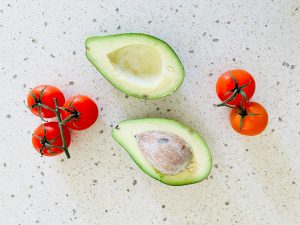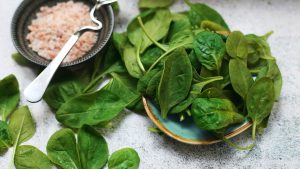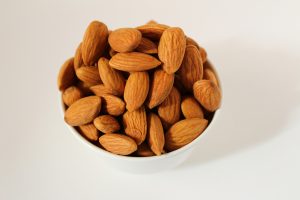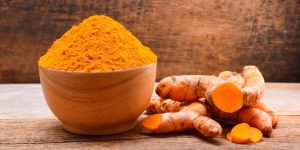As we age, maintaining cognitive function becomes increasingly important for a fulfilling and independent life. Fortunately, one of the most powerful tools for preserving brain health lies right on our plates. Nutrient-rich foods not only fuel our bodies but also nurture our minds, protecting against age-related cognitive decline and promoting overall well-being.
Diet plays a crucial role in brain health, and seniors can benefit immensely from making mindful food choices. Including specific brain-boosting foods can help slow the progression of cognitive decline, improve memory, and enhance overall mental sharpness. By regularly consuming these nutrient-packed foods, older adults can take proactive steps toward preserving their cognitive abilities and maintaining a vibrant, independent lifestyle.
Here is a top 10 list of brain foods for seniors that can be easily incorporated into their diet to support optimal brain health.
1. Avocados

Avocados are a unique fruit known for their creamy texture and rich flavor. They are packed with monounsaturated fats, particularly oleic acid, which is beneficial for heart health and may also support brain function. Oleic acid helps improve blood flow to the brain, providing essential nutrients and oxygen. Avocados also contain folate, vitamin K, and potassium, which contribute to overall brain health.
Folate is crucial for cognitive function and mood regulation. Vitamin K is essential for maintaining brain health and may help protect against age-related cognitive decline. Potassium helps regulate blood pressure, ensuring proper blood flow to the brain, which is vital for cognitive function.
2. Berries

Berries, including blueberries, strawberries, and raspberries, are renowned for their high levels of antioxidants. These antioxidants help combat oxidative stress and inflammation in the brain, which can contribute to cognitive decline.
Studies have demonstrated that regular consumption of berries, particularly blueberries, may improve memory, delay age-related cognitive decline, and enhance overall cognitive function in older adults. Berries are also rich in vitamins, minerals, and fiber, making them an excellent addition to a brain-healthy diet.
3. Dark Chocolate

Dark chocolate is not only a delicious treat but also a potent source of antioxidants and beneficial compounds. Dark chocolate contains flavonoids, which have been linked to improved cognitive function and neuroprotective effects. Flavonoids help increase blood flow to the brain, enhance neuronal function, and promote neuroplasticity.
Additionally, dark chocolate contains caffeine and theobromine, stimulants that can increase alertness and improve cognitive performance. Consuming moderate amounts of dark chocolate has been associated with better memory, attention, and overall cognitive function in seniors.
4. Eggs

Eggs are a nutrient-dense food packed with essential nutrients for brain health, including choline, vitamin B12, and folate. These nutrients are involved in memory and cognitive function and are essential for maintaining cognitive health, particularly in older adults.
Vitamin B12 is crucial for neurological health. Deficiency has been linked to cognitive decline and an increased risk of neurodegenerative diseases. Folate, like choline, plays a role in neurotransmitter synthesis and helps battle cognitive decline.
5. Fatty Fish

Fatty fish like salmon, trout, and sardines are rich in omega-3 fatty acids, particularly EPA and DHA. These omega-3 fatty acids are crucial for brain health as they play a pivotal role in building and maintaining the structure of brain cell membranes. Additionally, EPA and DHA have anti-inflammatory properties, helping to reduce inflammation in the brain, which is linked to cognitive decline and diseases such as Alzheimer’s and Parkinson’s.
Research suggests that regular consumption of fatty fish may improve cognitive function, memory, and overall brain health in seniors. Omega-3 fatty acids have been associated with a reduced risk of age-related cognitive decline and may even help prevent or delay the onset of conditions like Alzheimer’s disease.
6. Green Tea

Green tea is celebrated for its numerous health benefits, including its positive effects on brain health. It contains antioxidants that have neuroprotective properties. These antioxidants can cross the blood-brain barrier and help the brain.
Green tea also contains caffeine and L-theanine, a unique amino acid that promotes relaxation without drowsiness. The combination of caffeine and L-theanine can enhance cognitive function, improve mood, and increase alertness. Regular consumption of green tea has been associated with better memory, attention, and overall cognitive function in older adults.
7. Leafy Greens

Leafy greens like spinach, kale, and Swiss chard are nutritional powerhouses, packed with vitamins, minerals, and phytonutrients that support brain health. These greens are particularly rich in vitamin K, folate, and lutein.
Vitamin K is essential for forming a type of fat found in brain cell membranes, while folate plays a crucial role in regulating amino acid levels in the blood. High levels have been linked to an increased risk of cognitive impairment and dementia. Lutein, an antioxidant found in leafy greens, has been associated with better cognitive function and may help protect against age-related cognitive decline.
8. Nuts and Seeds

Nuts and seeds, such as walnuts, almonds, flaxseeds, and chia seeds, are rich in healthy fats, antioxidants, vitamins, and minerals that support brain health. These include a plant-based omega-3 fatty acid, vitamin E, and magnesium.
Vitamin E is a powerful antioxidant that helps protect brain cells from damage, while magnesium is involved in some brain function and may help improve cognitive performance.
9. Turmeric

Turmeric is a vibrant spice commonly used in traditional Indian cuisine and medicine. It contains a bioactive compound called curcumin, which has potent antioxidant and anti-inflammatory properties. Curcumin can cross the blood-brain barrier and bolster the brain’s memory and cognition functions.
Research suggests that curcumin may help protect against age-related cognitive decline and neurodegenerative diseases like Alzheimer’s. Curcumin’s anti-inflammatory effects may reduce neuroinflammation, while its antioxidant properties help protect brain cells from damage.
10. Whole Grains

Whole grains like oats, quinoa, brown rice, and barley are complex carbohydrates that provide a steady and sustained source of energy to the brain. They are also rich in fiber, vitamins, and minerals, including vitamin B complex, magnesium, and zinc.
B vitamins are essential for brain health as they play key roles in neurotransmitter synthesis and cognitive function. Magnesium is involved in over 300 biochemical reactions in the body, including those related to brain health and cognition. Zinc is crucial for brain function and memory formation.
Brain Health Beyond Nutrition
In addition to incorporating these brain-boosting foods, staying mentally active is just as crucial for maintaining cognitive function in later years. Engaging in activities like puzzles, reading, or learning a new skill can stimulate the brain and improve its resilience. Regular exercise also plays a vital role by increasing blood flow to the brain, further supporting cognitive health.
Seniors should also prioritize social engagement. Staying connected with friends, family, and the community fosters emotional well-being, which directly influences cognitive health. Loneliness and social isolation have been linked to faster cognitive decline, making relationships essential for a healthy mind.
Live a Healthy Life at Senior Lifestyle
Maintaining brain health is crucial for seniors to lead fulfilling and independent lives. By incorporating nutrient-rich foods like fatty fish, berries, leafy greens, nuts, and seeds into their diets, seniors can support cognitive function, protect against age-related cognitive decline, and promote overall health.
At Senior Lifestyle, our residents experience classes to support those needs in our signature programs, Brain Health University and Spark. We also combine healthy eating with exercise programs for your well-being. As you live a healthy life in comfort, we’ll take care of your daily needs, such as cleaning, cooking meals, and maintaining your living area.




